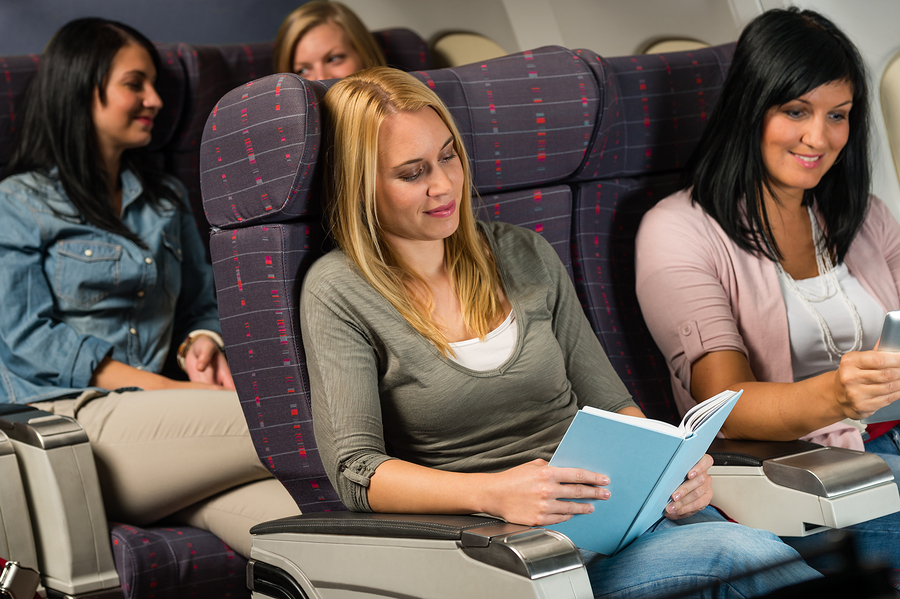Health Tips for Air Travel
 The vast majority of air travelers do not experience any harmful health effects while flying. However, the environment inside an airplane and other travel-related factors can potentially create discomfort and stress on passengers.
The vast majority of air travelers do not experience any harmful health effects while flying. However, the environment inside an airplane and other travel-related factors can potentially create discomfort and stress on passengers.
Here are some common concerns, along with general tips for making air travel safer and more comfortable:
- Extended sitting – Prolonged periods of immobility can slow blood flow to the legs, leading to swollen ankles and sometimes deep vein thrombosis, a serious and possibly life-threatening condition that can cause blood clots to form in the leg veins. To reduce your risk, get up to stretch and walk every hour (when possible), wear loose-fitting clothing and support stockings, stay well hydrated, and seek advice from your physician before your trip if you recently had surgery or have an underlying condition such as cancer or a blood-clotting disorder.
- Low humidity – The air humidity in an aircraft cabin is very low, which can cause mild to moderate discomfort. To minimize the effects on your body, drink at least eight ounces of water every hour, avoid caffeinated drinks and alcoholic beverages, wear glasses instead of contact lenses, apply skin moisturizers, and use lubricating eye drops as needed.
- Gas expansion – The middle ear and sinuses contain air that will expand as an aircraft ascends. Excess pressure is released through the nose. On descent, the opposite effect occurs. To facilitate the free flow of air and prevent ear pain, periodically yawn, chew, or swallow, and avoid flying if your sinuses are congested. Additionally, flying shortly after scuba diving can be dangerous due to the risk of decompression sickness; if you’re a diver, ask your doctor for advice.
- Jet lag – A long flight can transport your body into a faraway pace faster than your internal clock can adjust to the new time zone, which can sometimes result in fatigue, sleep disturbances, and gastrointestinal distress. To help manage the effects of jet lag, make sure you are well rested prior to your trip, avoid alcoholic beverages, eat well-balanced meals, exercise, and expose yourself to sunlight.
Be sure to pack all of the medications you will need for the duration of the trip in your carry-on luggage. Take extra in case your return flight is delayed. Also, ask your doctor if you will need to alter your dosages if your meal and rest times will change when you reach your destination.
At South Tampa Immediate Care, our experienced medical staff will be pleased to answer any questions you may have about staying healthy during air travel. Our walk-in clinic is open Monday through Friday, 8 a.m. to 8 p.m., and weekends, 8 a.m. to 5 p.m., and we do not require appointments.













